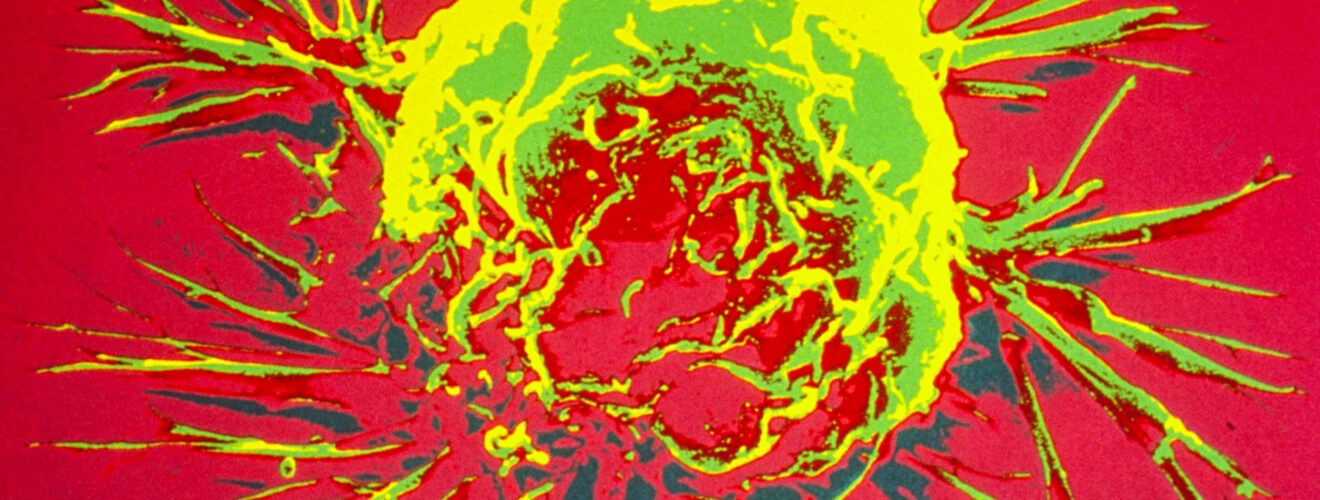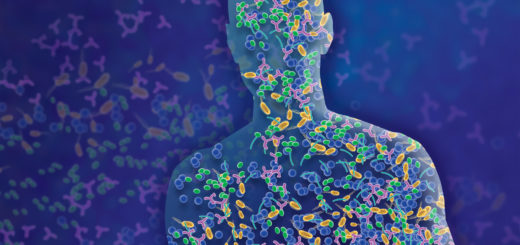The role of a DNA repair protein, MRE11, in fighting cancer

DNA is typically located in a membrane-enclosed structure in the cell called the nucleus, therefore, if DNA is found in the cytoplasm (the liquid which surrounds the structures within a cell) it can be an indication that the DNA has become damaged or mutated, which often occurs in cancerous cells. Damaged DNA in the cytoplasm can trigger an immune response in the cell by activating the protein cyclic GMP–AMP synthase (cGAS). Damaged DNA is bound by cGAS proteins, causing cGAS to activate an inflammatory immune response in the cell[1].
Despite the high levels of DNA damage they carry, cancerous cells can survive and even rapidly proliferate. This is particularly true for cancers where the mutations impact proteins involved in DNA repair, as the damage cannot be reversed, resulting in uncontrolled multiplication of the mutated cells1. Such proteins include BRCA1, BRCA2, and MRE11, which regulate the cell cycle and the DNA repair mechanisms. Mutation in these proteins can result in the development of cancers including ovarian, breast, and colorectal.
In a study published in Nature, Cho and colleagues identified a previously unknown function of the protein MRE11, which mainly serves to repair DNA damage[2]. Through genetic screening they identified that mutations in the MRE11 gene were particularly common in mice models of breast cancer. This suggested that mutations to the MRE11 protein might be one contributing factor to developing some breast cancers. They found MRE11 was important in allowing cGAS to move from the nucleus into the cytoplasm, where it can then activate an immune response against mutated cells. Notably, the presence of MRE11 decreased the growth of cancer cells, therefore, in models where this protein was mutated to be non-functional, the tumour continued to develop rapidly.
One of the proteins activated by MRE11, Z-DNA-binding protein 1, was previously associated with poorer recovery in some breast cancers. Specifically, reduced activation of Z-DNA-binding protein 1 by MRE11 increases the risk of breast cancer, demonstrating the real-world implications of the disruption of the MRE11-cGAS pathway[3].
From these experiments, Cho and colleagues suggest that the anti-tumour immune response initiated by cGAS requires MRE11 to allow it to move to the cytoplasm where it binds damaged DNA. This calls for further investigation of the effects of the disruption of these proteins in cancer and how the influence on DNA-repair pathways can impact medical outcomes.
[1] https://www.nature.com/articles/d41586-023-03994-4
[2] https://www.nature.com/articles/s41586-023-06889-6
[3] https://www.ncbi.nlm.nih.gov/pmc/articles/PMC8797367/
Edited by Hazel Imrie
Copy-edited by Rachel Shannon







